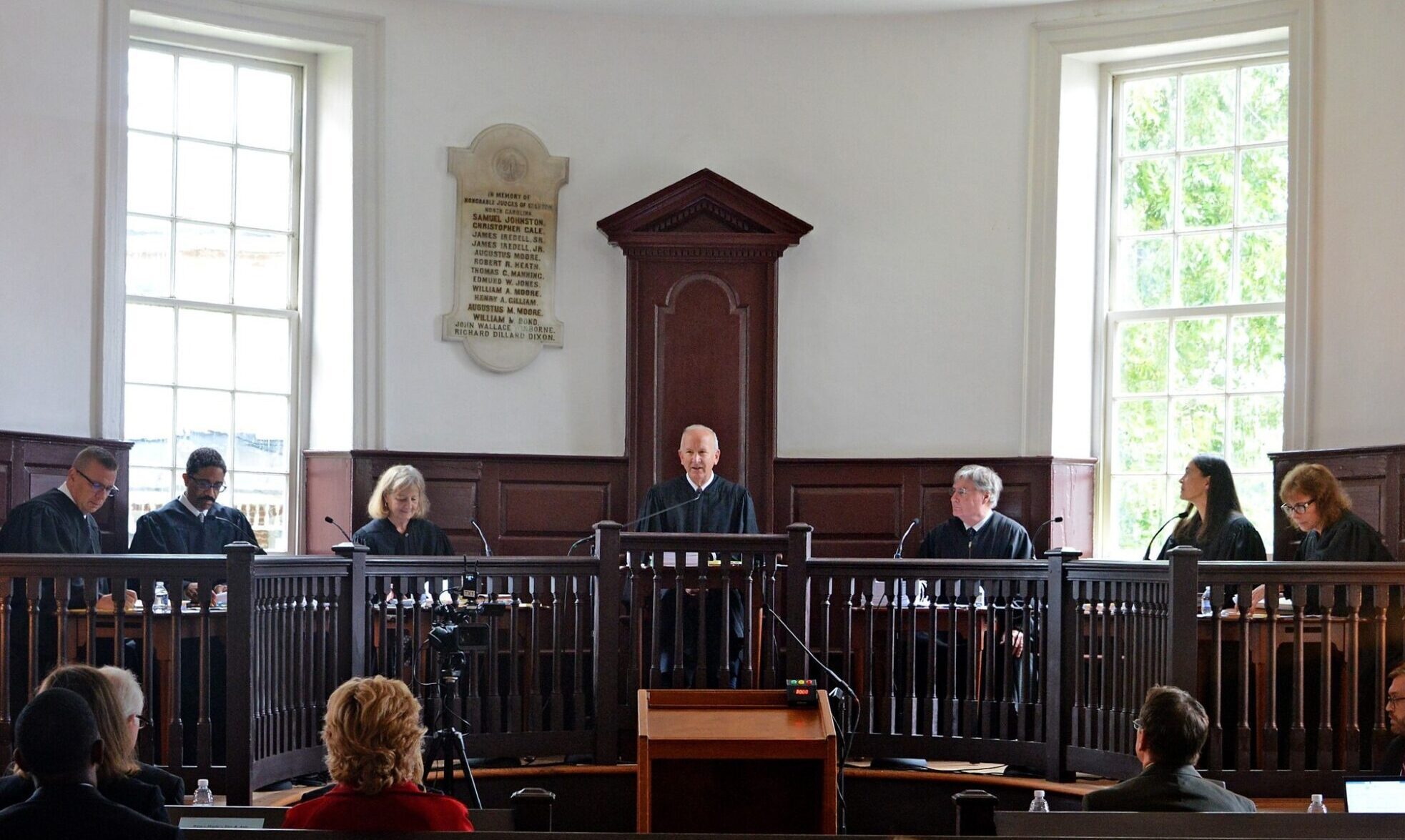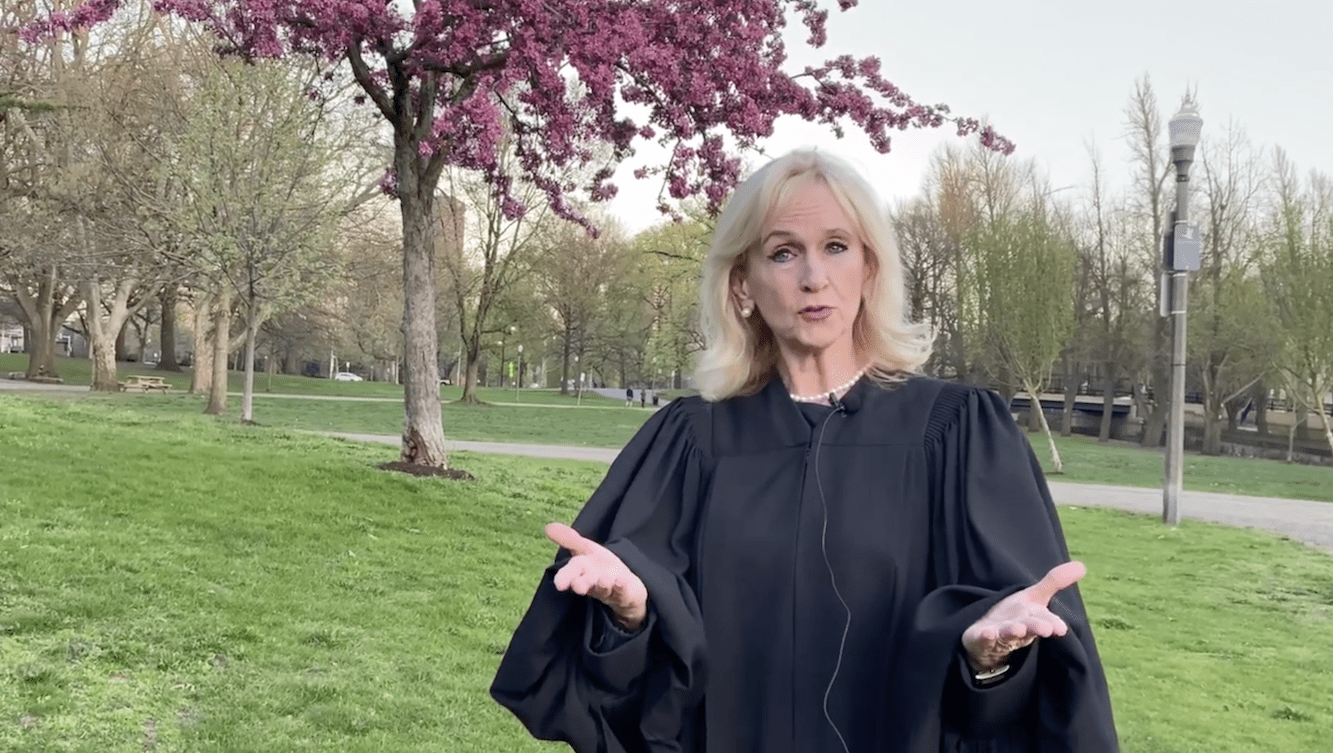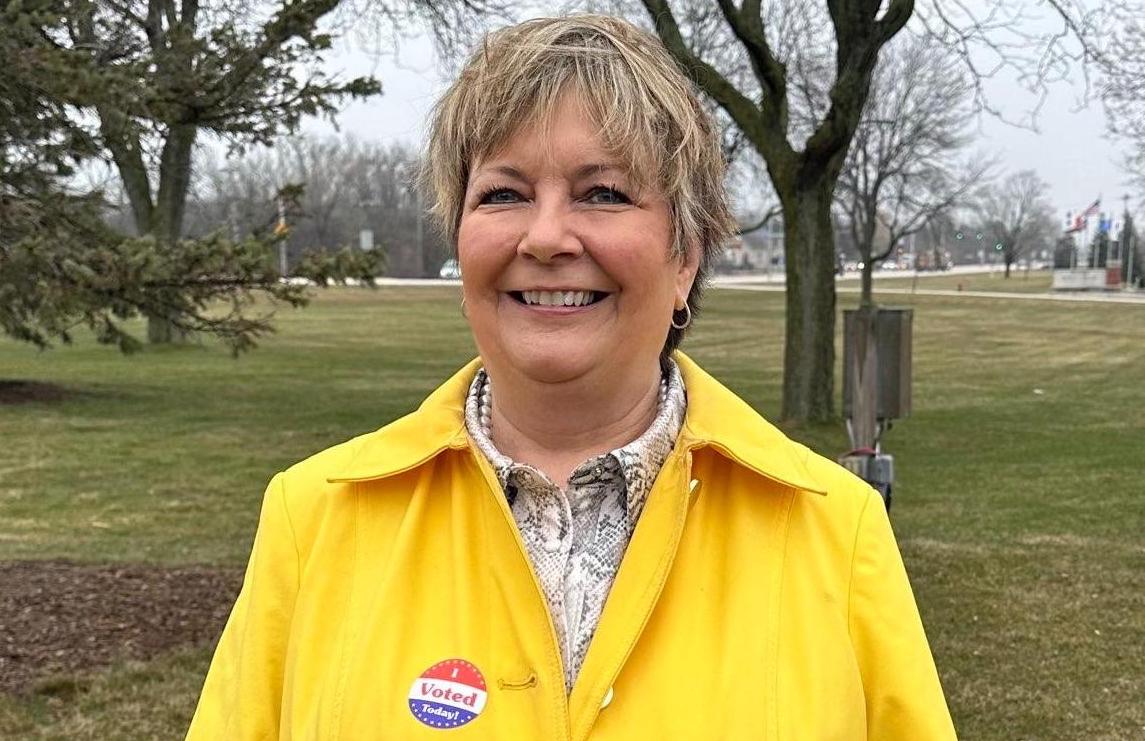Different Futures For Pennsylvania Elections Collide in November’s Supreme Court Race
Candidates for an open seat on the court would take election law in divergent directions, as disputes loom over mail voting, gerrymandering, and ballot counting in this key swing state.
Alex Burness | September 15, 2023


Editor’s note (Nov. 7): Democrat Daniel McCaffery won this supreme court election.
In a decision that landed days before the 2022 midterms, the Pennsylvania Supreme Court ordered elections officials not to count any mail ballots on which a voter had forgotten to include a date or scribbled an incorrect one, even if those ballots arrived on time. It was a victory for Republicans who had challenged the state’s mail voting procedures, and voting rights advocates found thousands of Pennsylvanians whose ballots were tossed as a result.
The court was one vote short of ruling that rejecting these ballots would violate federal protections, and thus should be counted; it split evenly on that question, 3 to 3. The tie-breaking vote would have come from Max Baer, the court’s Democratic chief justice, but he had died just weeks before. His death weakened a court majority keen to protect voting rights, and his seat has remained vacant ever since.
Pennsylvanians in November will finally fill Baer’s seat, just one year before the 2024 presidential race. The result could substantially affect the future of election law in this key swing state, with new cases likely looming over mail voting, redistricting, and election certification.
“There are a large number of open questions about Pennsylvania’s elections that are almost assuredly heading to the Pennsylvania Supreme Court in 2024” Victoria Bassetti, senior counsel at States United Democracy Center, a nonpartisan group that advocates for ballot access, told Bolts. “The experience of the last three years proves that every single one of those issues is hard-fought in the supreme court.”
“Whoever is elected to this seat will have a critical voice in those decisions—and maybe even the deciding voice,” Bassetti said.
The candidates in the Nov. 7 race have signaled they’d take election law in different directions, in the state that saw more election lawsuits in 2020 than any other.
Democrats have a 4-2 majority on the court, down from 5-2 before Baer’s death, so they are sure to keep their edge this fall no matter the result of November’s election. But decisions from this court don’t always fall on party lines, as illustrated by the 2022 mail voting case.
Plus, the terms of three sitting Democratic justices end in 2025. If the GOP narrows its deficit this year, it would set Republicans up to only need to flip one of those seats to regain a majority later this decade.
The election pits Democrat Daniel McCaffery, a judge on the Pennsylvania Superior Court, one of the state’s intermediate appellate courts, against Republican Carolyn Carluccio, a judge on the Montgomery County Court of Common Pleas, a local trial court. In the GOP primary, Carluccio bested Patricia McCullough, the only judge in the country to side with then-President Donald Trump’s efforts to halt ballot certification in 2020.
That GOP primary result was yet another defeat this year for candidates with overt ties to election denialism, but Carluccio herself has dabbled in election conspiracy. She claimed at a campaign event in the spring that election procedures in Pennsylvania were inviting suspicions on fraud.
“We should be able to go to the polls and understand that our vote counts and understand that there’s not going to be some hanky-panky going on in the back,” she said, despite the lack of any evidence of widespread fraud in the state ever since Trump waged those accusations in 2020
Carluccio made those comments in the context of criticizing Act 77, a bipartisan law that broadly expanded ballot access in Pennsylvania in 2019. Before Act 77, Pennsylvanians were required to vote in person unless they could demonstrate a special reason, like illness, to qualify for an absentee ballot. But Act 77 legalized vote-by-mail for anyone who wanted that option—and millions of voters, mostly Democrats, quickly took advantage of this new convenience during the pandemic.
Still, Trump’s camp and other Republicans denounced it in 2020 as part of their efforts to overturn election results, arguing that the state constitution required in-person voting on Election Day, and the state supreme court upheld the law in a 5-2 party-line decision.
Carluccio appeared to invite critics of the law to bring a new challenge to Act 77 if she is elected. “I would welcome that to come up before me again, let’s put it that way,” she said at the same spring event. “I can tell you that Act 77 has been very bad for our commonwealth.”
Asked by The Philadelphia Inquirer after the event whether she believes election results in 2020 and 2022 were “free and fair,” she dodged the question: “If even one Pennsylvanian has concerns about our electoral process, we must address them,” she said.
In an exchange with Bolts this week, her campaign sounded a different note. Asked if she thought the results of the 2020 and 2022 elections were legitimate, Carluccio simply said in a statement emailed by her campaign, “Yes.”
But she also seemed to suggest that voter concerns about fraud inform her own approach to voting procedures. She reiterated her concern about mail voting, criticizing the court she hopes to join for giving “inconsistent and conflicting” guidance on the matter of ballot-dating.
“I’ve heard from Democrat, Republican and Independent voters across the Commonwealth and many have concerns about the security of our elections, albeit differing concerns,” she said in the written statement. “I believe bold transparency in the administration of our elections is vital, paired with consistent application of our election laws regardless of the election year.”
McCaffery, the Democratic candidate, told Bolts in an interview by phone that he would not comment directly on legal challenges to Act 77, since he expects he may have to rule on that law in the future. But he articulated his stance on voting rights generally: “If we’re going to err, we should always err on the side of including votes, as opposed to disqualifying votes for technicalities, or perceived technicalities,” he said.
McCaffery added, “I think it’s pretty crystal clear: The bedrock principle behind American democracy is ‘one person, one vote.’ If that’s what we really believe, then we should be looking for ways to encourage participation.”
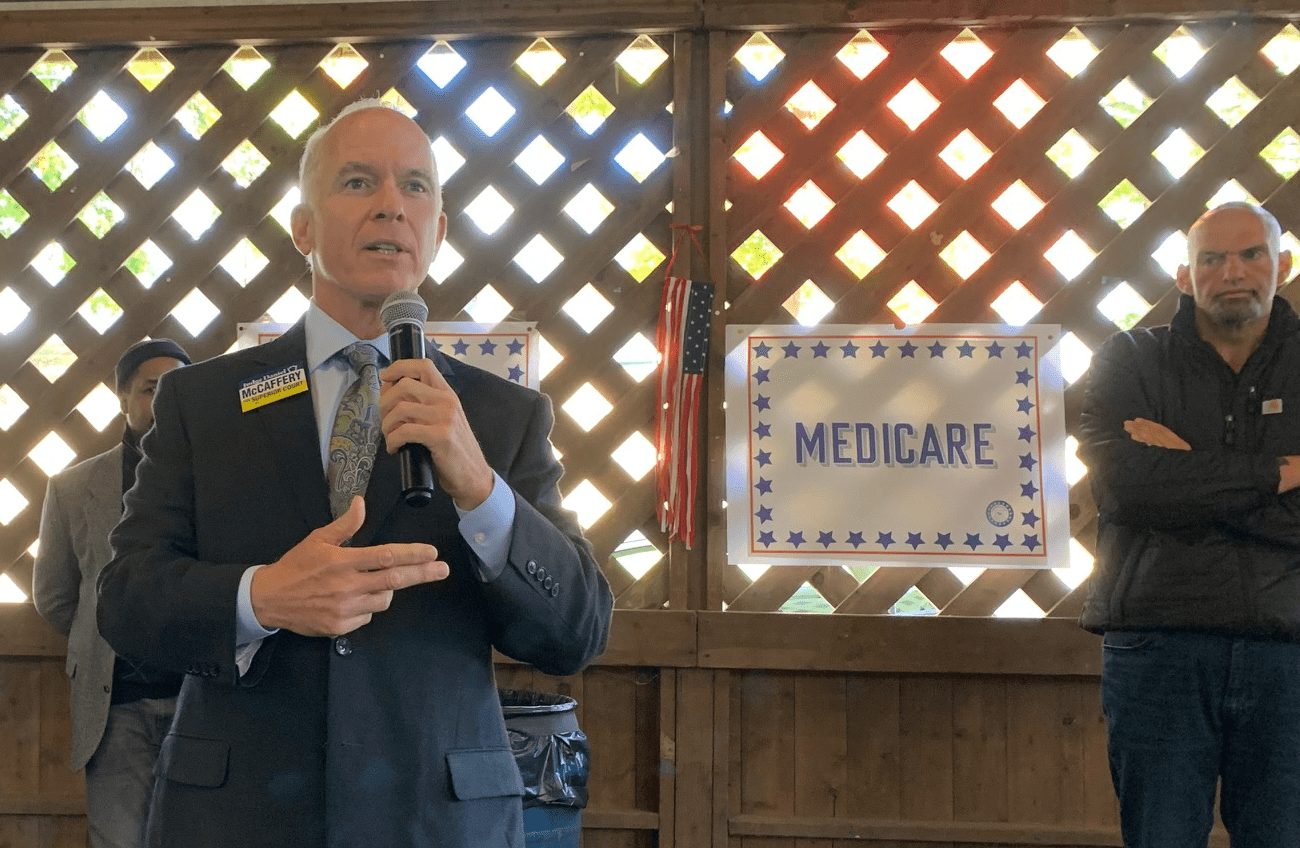

A former prosecutor in the 1990s who joined the bench in 2003, McCaffery has been close to the state Democratic Party, including sitting on the Pennsylvania Democratic State Committee. He’s also signaled proximity with conservative jurisprudence, though, saying in a 2019 questionnaire that John Roberts was the U.S. Supreme Court Justice closest to his judicial philosophy, over those of liberal justices listed on the questionnaire such as Ruth Bader Ginsburg and Elena Kagan.
A win by McCaffery would keep Democrats ahead 5-2; the margin would narrow to 4-3 if Carluccio flips the seat. The next election will be held in 2025, when three Democrats are set to face retention races—up-or-down contests where voters say whether a judge should stay on the court.
Retention elections are rarely big news: Only once, in 2005, has a sitting justice lost. But supreme court elections have been much more closely watched as of late, and national records for spending in a judicial race were smashed this spring in Wisconsin.
One or more of the justices could also choose to not seek a new term, in which case there’d be a regular election to replace them in 2025, offering the GOP a far more direct shot to flip seats and the court. Christine Donohue, one of these justices, will turn 73 in 2025, just two years away from Pennsylvania’s mandatory retirement age for judges.
The last time the court flipped, to Democrats in 2015, it paved the way for a landmark ruling in 2018 that struck down the state’s Republican gerrymanders and helped Democrats win control of the U.S. House in the 2018 midterms. The winner of the election between Carluccio and McCaffery would serve through at least 2033 and would be set to hear any redistricting lawsuits that arise from the next round of map-drawing.
“I consider voting rights to be the most important issue going on,” said Dan Fee, a Pennsylvania political consultant who ran a super PAC that supported the Democratic judicial candidates in the 2015 elections. “We have a supreme court that cares that people vote and that votes are counted. We’d like to keep that.”
McCaffery told Bolts he applauded the court’s 2018 decision to invalidate the previous GOP gerrymander. “The old ways of doing things—I don’t think that’s fair,” he said.
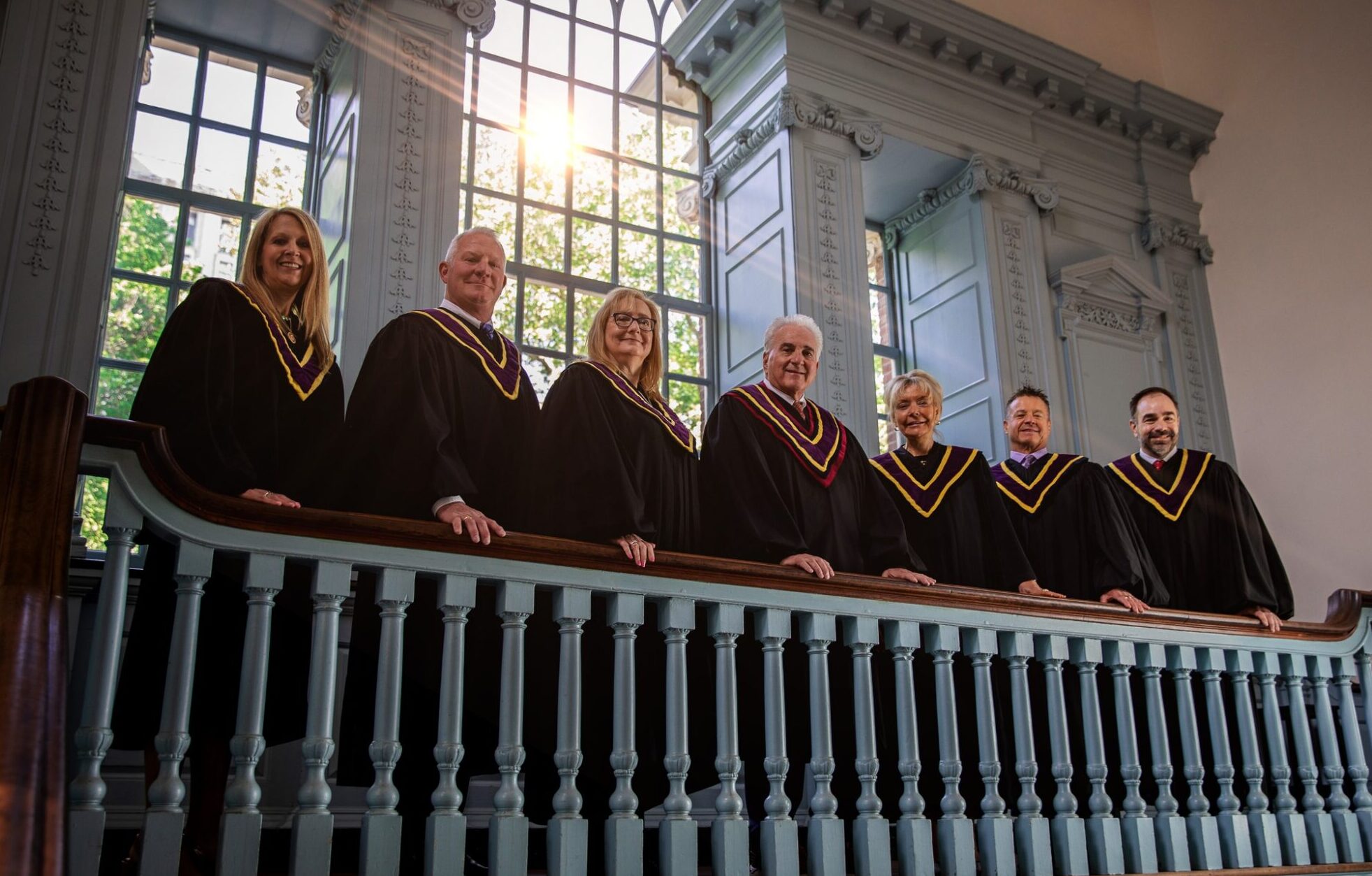

In addition to gerrymandering and lawsuits over Act 77 and over ballot-dating, the court was also responsible for resolving key legal disputes in the immediate aftermath of the 2020 election. In one instance that November, the court reversed a lower court’s decision to halt certification of state elections results; in another, it reversed a lower court’s decision forcing local election officials to allow observers to watch ballot-counting from six feet away.
In all, the Pennsylvania Supreme Court’s string of rulings enabled vote-counting to proceed on schedule. Voting rights advocates felt the state’s democracy had passed an important test.
It will be tested again, they say.
“People can get burnt out on it being the apocalypse every time,” said Kyle Miller, who recently authored a report for the nonprofit organization Protect Democracy on legal challenges in Pennsylvania. “This court oversees the real, basic infrastructure of our electoral process. It’s really important that the folks ruling on these cases support democracy and recognize that voters want their voices heard.”
Pennsylvania’s supreme court race has also drawn attention for its stakes for abortion rights, with Democrats now hammering the message that making state courts lean left is a critical response to the U.S. Supreme Court overturning Roe vs. Wade in 2022.
Carluccio, who has said she identifies most closely with the judicial philosophy of Antonin Scalia, the late U.S. Supreme Court justice widely admired by conservatives, featured anti-abortion language on her website before deleting it earlier this year, Politico reported. McCaffery has said he disagrees with the Dobbs decision and that he believes “from a personal standpoint” that “those particular issues are best decided between a woman, her conscience and her doctor.”
The GOP cannot change abortion rights in coming years, since they will not run the state government until at least 2026. Still, Fee says, “The threat about (reproductive) choice may not be immediate but it is there; at some point we’ll have a different governor and legislature.”
But he and other Pennsylvania observers said the stakes of this election are more immediately high for voting rights issues, considering the heap of recent and current litigation around state elections.
“What this court is ruling on really does go to the heart of election administration,” Miller said. “The process of canvassing votes, of certifying an election—these things that used to be niche topics are now life and death.”
This article is part of U.S. Democracy Day, a nationwide collaborative on Sept. 15, the International Day of Democracy, in which news organizations cover how democracy works and the threats it faces. To learn more, visit usdemocracyday.org.
Stay up-to-date
Pennsylvania Votes
Bolts is closely covering the ramifications of Pennsylvania’s 2023 elections for voting rights and criminal justice.


